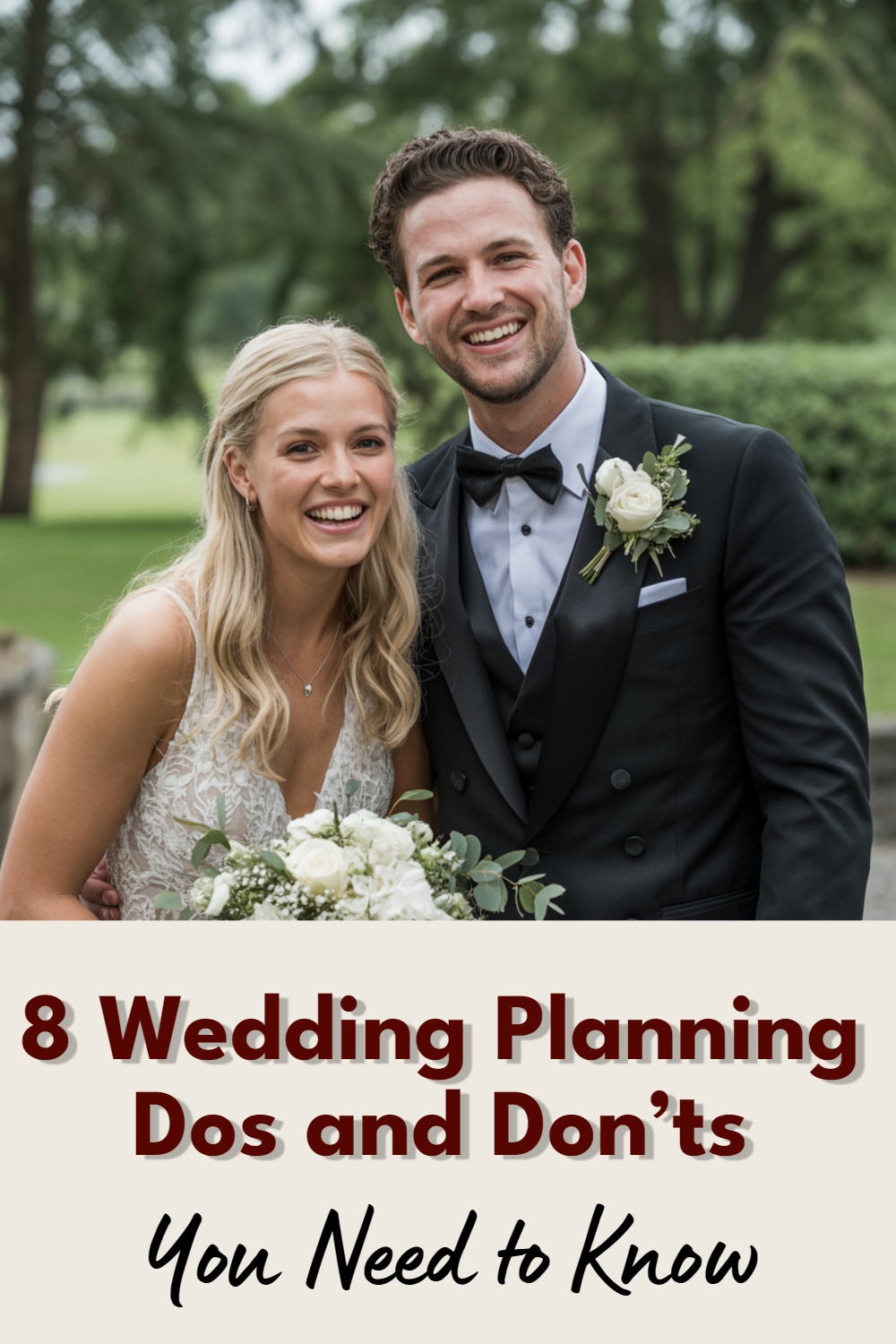Planning a wedding can feel like navigating a minefield of opinions, traditions, and expectations.
After watching countless couples stumble through this process—and seeing what actually works versus what sounds good on Pinterest—these essential dos and don’ts will save you time, money, and your sanity.
1. Do: Set Your Budget First (And Actually Stick to It)
Before you fall in love with that $8,000 dress or dream venue, sit down with your partner and have the money talk. Be brutally honest about what you can afford without going into debt or asking family to bail you out.
Create three budget tiers: must-haves, nice-to-haves, and fantasy items. Your venue, food, and photographer typically eat up 60-70% of your budget, so allocate accordingly. Everything else is negotiable.
Once you’ve set those numbers, treat them like gospel. I’ve seen too many couples rationalize overspending because “it’s our special day,” only to start married life drowning in credit card debt.
2. Don’t: Try to Please Everyone with Your Guest List
Your great-aunt’s college roommate doesn’t need an invitation just because she sent you a birthday card five years ago.
Guest list bloat is real, and it’s expensive—every additional person costs you roughly $75-150 depending on your venue and catering choices.
Start with your non-negotiables: immediate family and closest friends. Then work outward in circles of importance. If you haven’t spoken to someone in over a year, they probably don’t make the cut.
Be prepared for hurt feelings and stand firm anyway. Your wedding day should be surrounded by people who genuinely care about your relationship, not distant relatives fulfilling social obligations.
3. Do: Book Your Big Three Early
Your venue, photographer, and caterer (if separate from the venue) should be locked in 8-12 months ahead of time. These vendors get booked fast, especially for popular dates like Saturday evenings in spring and fall.
Popular photographers often book 12-18 months in advance for peak season. Don’t assume you can find someone good at the last minute—you’ll either pay premium rush fees or settle for someone whose work doesn’t match your vision.
Venues have limited availability, and your date flexibility gives you negotiating power. If you’re open to Friday evening or Sunday afternoon celebrations, you’ll often score better rates and have more venue options.
4. Don’t: Obsess Over Pinterest-Perfect Details
That elaborate dessert table with 47 different sweets? Your guests will take Instagram photos and eat one cookie. Those hand-calligraphed escort cards that took you 30 hours to make? People glance at them for three seconds.
Focus your energy and budget on elements that create lasting memories: great food, good music, comfortable seating, and an open bar (if that’s your style). These basics done well trump elaborate decorations every time.
Pinterest is inspiration, not a checklist. Choose 2-3 special touches that reflect your personality and let the rest be simple and elegant.
5. Do: Hire a Day-Of Coordinator (Minimum)
Even if you’re planning everything yourself, hire someone to execute your vision on the actual day. You should be getting married, not texting vendors about setup times or hunting down missing centerpieces.
A good coordinator handles all the behind-the-scenes logistics: vendor management, timeline enforcement, and crisis resolution. They’re your insurance policy against things going sideways.
Day-of coordination typically runs $800-1,500 and is worth every penny. Full-service wedding planners cost more but can actually save money through vendor relationships and preventing costly mistakes.
6. Don’t: Leave Everything Until the Last Month
Wedding planning procrastination creates unnecessary stress and limits your options. Invitations should go out 6-8 weeks before your date, which means finalizing your guest list, ordering, and addressing them needs to happen well before that.
Last-minute planning also costs more. Rush fees for flowers, alterations, and printing add up quickly. Vendors may not be available, forcing you to settle for second or third choices.
Create a timeline working backward from your wedding date. Spread tasks across several months instead of cramming everything into the final weeks when you should be relaxing and enjoying your engagement.
7. Do: Plan for the Unexpected
Weather, vendor cancellations, family drama, and wardrobe malfunctions happen. Build buffer time into your timeline and have backup plans for outdoor ceremonies.
Create an emergency kit with safety pins, stain remover, tissues, pain relievers, and snacks. Assign a reliable friend or family member to handle any crisis that pops up so you don’t have to.
Wedding insurance costs $100-300 and covers vendor no-shows, extreme weather, and other disasters. It’s a small price for peace of mind, especially for expensive weddings or destination celebrations.
8. Don’t: Forget to Eat and Hydrate
Brides and grooms regularly faint, feel dizzy, or get hangry because they’re too nervous or busy to eat properly. Start your wedding day with a substantial breakfast, even if you’re not hungry.
Pack snacks for the bridal party during photos and getting ready. Low blood sugar plus wedding stress equals potential meltdowns or medical issues.
Stay hydrated throughout the day, especially if you’re drinking alcohol. Alternate water with cocktails, and eat something substantial before the reception if there’s a long gap between ceremony and dinner.
| Wedding Day Survival Kit |
|---|
| Protein bars or substantial snacks |
| Water bottles |
| Pain relievers |
| Stain remover pen |
| Safety pins |
| Tissues |
| Phone chargers |
| Emergency contact list |
Your Wedding, Your Rules
These dos and don’ts aren’t about creating the “perfect” wedding—they’re about avoiding common pitfalls that create stress, overspending, and regret. Every couple’s priorities are different, and your wedding should reflect what matters most to you.
Trust your instincts, communicate openly with your partner, and don’t let other people’s expectations derail your vision. The best weddings feel authentically like the couple getting married, not like a magazine spread or someone else’s dream day.


